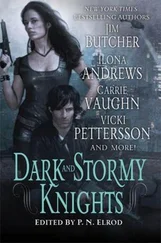“I never paid much attention when Reid and us were in the field.” She read over the report, written in stiff and legal men’s language. She held it in her large hands, they were shiny and cracked from detergent and heavily muscled from lifting the ironing beams of the Sno-White Dry Cleaning and Laundry. “I was trying to make a woodstove out of a fifty-five-gallon steel drum while Reid and Jack were hauling pipe and going to the beer joints. Burned shingles in it, that were laying in a heap from where somebody tore down a bunkhouse.”
“We had one too,” Elizabeth said.
“Yes.”
“You sat it up on Garden Valley tomato cans. For legs.”
Violet got up and went to the cookie jar to lay out a plate of sugar cookies. An offering of delicacies, when they spoke of the hardships she had avoided by the simple solution of marrying a dull regular guy and living a boring ordinary life in one single place.
“I’m glad Joe got out when he did,” Violet said. “After those men got killed at the Mexia blowout, he said, ‘That’s it for me.’”
“This well is going to come in.” Lillian slapped her papers down on the table.
“Yes, it could come in,” said Elizabeth. “It could come in at a barrel of salt water a day and them having to pump it to get it out.” She twisted her wedding ring on her finger. She looked around at the neat kitchen with its pop-up steel toaster and the bright squares of linoleum. “I should try to get work somewhere, I guess. Maybe at the laundry.”
“Just hang on and see, Liz,” said Lillian. “Wait and see.”
“I sort of wished we would have gone to the oil strikes with you-all,” said Violet. “All your-all’s stories.”
“No, you wouldn’t have wanted to go,” said Elizabeth. And an image flashed through her mind of a man running through the streets of Ranger with a dead child in his arms and a crowd following behind and all of them screaming for the doctor and the child covered with mud, drowned in an abandoned slush pit. And how she had seized her girls close and backed against the wall of the Blue Eagle Café when he ran past, gripped their hands as if she would link and forge them all together, a chain that like the circle would be forever unbroken. Elizabeth stared at the ceramic tiles of the gas heater. Thus it was they had brought oil to the cities of the East. “You wouldn’t have, either, Vi. Those stories were hard bought. Those stories come at a high price.”
Elizabeth drove out of Mineral Wells, on State Highway 66, toward the big oil field that lay just at the county line. She was driving the Keeners’ car with great caution, it was a nearly new Studebaker with an ornate steering wheel. She wore her maroon coat and her hat and her gloves.
The field had been brought in by Magnolia a few years ago. Most of the wells were now in production; only a few other wells were being drilled. Making hole, the men said. The horsehead pumpjacks seemed like alien beings, lately come to the country and still confused as to their whereabouts. They worked away untended, nodding and nodding, as if perpetually agreeing with everything, with the state of the weather and the cattle strolling by and the machines and the people in the fields, white farmers and black farmers and the hired families, scrapping the fields, taking up the remains of the cotton from its clawed husks that tore the fingers.
The pumpjacks stood on an upright beam called the Sampson post, and across this was laid the walking beam. On one end of the beam was the heavy horsehead and on the other end the counterbalance, and thus like great seesaws they tilted up and down, up and down. The horsehead and the counterbalance lifted and sank with a perpetual creaking and thudding noise. From the horsehead end was suspended the sucker rod, which plunged thousands of feet into the ground and drew up the oil.
Throughout the field stood several derricks, slung with giant block and tackles, and below these, men shouted to one another. The field was thriving with the noise of engines, the rolling crash of the draw works. The oak leaves were rust-colored now with the cool weather, and along the creek bottoms the pale-bodied Texas persimmons scattered yellow leaves like coins.
Elizabeth drove through the main gate. It was only a quarter mile to the engine house and the office. She drove slowly down a good hard road of gravel between rigs, passing men carrying their lunch boxes, looking for a place to sit and eat their sandwiches, for it was now nearly noon. They laid out their food carefully, everything about them was careful, they had the gravity of men who knew they were lucky to have jobs, and food in their lunch pails. The sun gleamed off the slush pits. The gray chemical mud boiled up under the pressure of hammering pumps.
She came to the office where a man stood in front of the corrugated steel building flipping through sheets of data. It was George Lacey, the connections foreman. He wore a pale brown fedora with a pair of sunglasses tucked on top of the brim, around the crown. There was a pile of cores lying nearby, stone cylinders four inches across and a foot long, drawn up from the deep strata by the core bits. She shut off the Studebaker’s engine and got out and walked toward him.
She said, “Mr. Lacey?”
His head jerked up. He was startled by the sound of a woman’s voice. A woman dressed in heels and a suit and a hat had no business whatever in an oil field. He was also struck by her quiet and simple good looks and her careful small steps across the stony ground.
After a moment’s pause he took off his hat.
“I’m Mrs. Stoddard,” she said. “I was married to Jack Stoddard.”
“Mrs. Stoddard,” he said. The sunglasses fell off the hat and he bent down to pick them up. “I was very sorry to hear about your husband.” Elizabeth nodded. He had probably heard quite a lot. “How can I help you?”
“Well, Jack said you owed him money. For hauling a load of acid for you-all.”
“Come in.” George Lacey opened the door of the office for her, walked in after her, and stood at a desk until she had seated herself in a wooden kitchen chair against the corrugated wall. In the corner was a pile of turnbuckles and somebody’s oil-covered boots. The ceaseless noise of the oil field came through the unlined wall.
“I’d appreciate it if you’d give me his pay.” She folded her gloved hands on her lap in a soft, formal gesture.
“Yes, I am more than happy,” he said. “I didn’t know what to do about it.” His hands were raw and big. He took up a checkbook and a pen. He said, “I can make it out to you if you want.” His hand held the pen suspended over the check, he was about to place her name on the paper. He would learn what her first name was.
“Well, cash would be better.” She tipped her feet forward and back.
“Yes, of course,” he said, and then opened a safe, rolling the tumblers over quickly, then counted out fifty dollars, a month’s wages for freighting.
Elizabeth took the bills and shut her purse on them. Part of the money should go for food and gas. And then every cent of it that was left would go into the well.
Lacey said, “You know, there’s another man owes your husband some money. I don’t know if he said anything.”
Elizabeth lifted her eyebrows in surprise and her mouth opened. Then she shut it. Good, more money for the well. She smiled again.
“Really? Who’s that?”
“A driller named Crowninshield. He’s come up from Louisiana for a drilling job for the Beatty-Orviel Oil Company, a little outfit. He’s got an old cable-tool rig and contracts out.”
“Oh yes, I know about that well.”
“It’s a wildcat, Mrs. Stoddard. I hope you haven’t been talked into investing anything in it.”
Читать дальше












